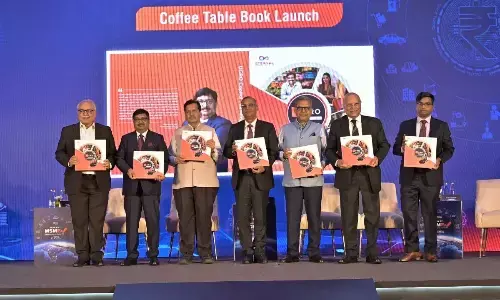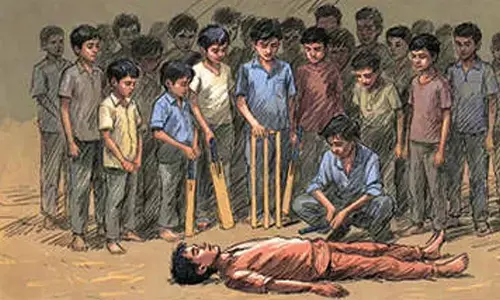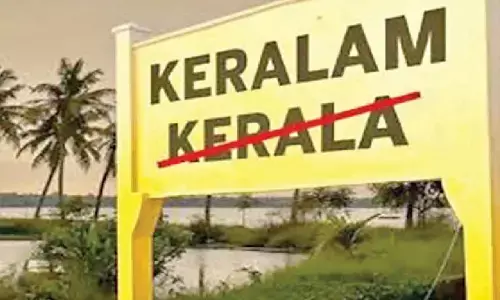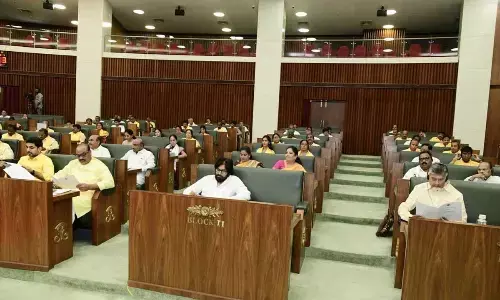Eclipse of the rupee

What happened in Delhi a little before and soon after 21st May 1991 is part of history. But before that, the day, 21st May, 1991, was history itself. On that day, at Sriperumbudur, a place near Chennai, Rajiv Gandhi was assassinated. The election campaign was at its zenith then and every political pundit was sure of one fact: That Rajiv Gandhi was going to form the government at the Centre. And then the assassination.
Manmohan Singh, who was a former Governor of the Reserve Bank of India, was asked to occupy the chair even before he could enter Ashoka Block himself. He was the first non-political economist to hold the post
.jpg) What happened in Delhi a little before and soon after 21st May 1991 is part of history. But before that, the day, 21st May, 1991, was history itself. On that day, at Sriperumbudur, a place near Chennai, Rajiv Gandhi was assassinated. The election campaign was at its zenith then and every political pundit was sure of one fact: That Rajiv Gandhi was going to form the government at the Centre. And then the assassination.
What happened in Delhi a little before and soon after 21st May 1991 is part of history. But before that, the day, 21st May, 1991, was history itself. On that day, at Sriperumbudur, a place near Chennai, Rajiv Gandhi was assassinated. The election campaign was at its zenith then and every political pundit was sure of one fact: That Rajiv Gandhi was going to form the government at the Centre. And then the assassination.
But happened at Delhi a little earlier? PV Narasimha Rao had almost made up his plans to go back to his home at Hyderabad and he had ordered his library to be shifted. This is, according to his second son and my good friend P.V.Rajeshwar Rao, who confided to me then. But by a strange quirk of fate the unthinkable happened; he was asked to stay back in Delhi and, after careful deliberations, the Congress chose him – as a senior and experienced and, more importantly, loyalist of Gandhi family, as the Prime Minister.
Even before he could take over that office, he appointed somebody to a ministry which was virtually on the point of collapse at that time during Vajpayee’s reign under the then Finance Minister Yashwant Sinha. He chose a bureaucrat for the coveted post of Finance Minister, a move never done before. Manmohan Singh, who was a former Governor of the Reserve Bank of India, was asked to occupy the chair even before he could enter Ashoka Block himself . He was the first non-political economist to hold the post.
What was the economic situation then? The economy was in tatters. Foreign exchange reserves had shrunk to less than $1 billion and India was forced to beg for dollars before IMF. Gold was pawned with the Bank of England to avoid defaulting payments to global debtors. “It was national humiliation’’ was the comment of the then Finance minister Manmohan Singh who took over the shattered economy soon after.
It is now the turn of the erstwhile Finance Minister to criticise the government for policy paralysis and taking the economy back to the Nehruvian era of high interest rates and high inflation. It will take years to restore faith in the economy, according to him.
Going back to 1991,these two old men, PV Narasimha Rao and Manmohan Singh, in their seventies took the “bull’’ by its horns and what they did together in the next five years was again history. The country looked what it had never done before. They reduced the fiscal deficit, liberalized foreign direct investment, stabilized external loans in foreign trade, opened India’s equity markets, and, most importantly, the rupee was made convertible on trade account; transport and communication sector was opened to international players, a move that virtually revolutionized the sector.
In those days, it was presumed that perhaps it was the brain of an economist at the helm that was responsible for all the positive moves. But with the same ‘economist’ at the helm in the last nine years witnessing the calamity all around, we can now safely presume that it was more the vision of the then Prime Minister than the operative force of the minister that produced the results. The greatest irony is, the same economist is presiding over the record collapse of the Indian rupee now.
The Indian economy is yet again in one of its worst turmoils. The rupee has hit a record Rs.68.8 (when this column is being written) to a dollar. Foreign investors reportedly developed cold feet after the previous Finance Minister Pranab Mukherjee slapped tax payment notices to Vodafone with retrospective effect, (he was himself regretful of committing a few mistakes at a later date) while the man at the helm, a seasoned economist, did not seem to guide him during 2009-2011.
Amidst the turmoil, Sonia Gandhi steadfastly pushed the Food Security Bill. Drowning Congress is catching the straw to come back to power. No one can deny the importance of the scheme when 50 percent of the population, particularly women and children, is undernourished. The protagonists say it costs only 20% more than what we are already incurring, while critics say it would cost 120 percent. Even if the actual cost falls in between, the question is: Can the Government afford this liability at a time when the economy is shrinking?
The debility or the health of the rupee is directly proportional to the occasional reading between the lines of the government policies by various economic fora around the globe. Here, there is nothing much to read between. The present government, while conscious of the fact that there can be no question of the Food Security Bill being implemented in the next nine months both because of the time at hand and its ability to garner the money needed, is only aiming at the next election. Obviously, this government is in utter desperation to ride two horses. The Food Security Bill can neither end the hunger of the poorest of the poor nor win the next elections for the ruling party.
The consequent inflation is skyrocketing each day with 250% increase in the price of vegetables, and petrol prices are being revised on a weekly basis. This may undo what the Food Security Bill aspires to achieve as far as the common man. Consistent demand of dollar payments for oil supplies and the rise of crude oil prices in the international market and the Syrian crisis are squeezing the Indian rupee. It is presumed that at this rate the crude price might hit $120 per barrel.
It was Swaminathan Iyer of The Economic Times (Swaminomics) who warned: “Get ready for Asian crisis in twelve to eighteen months. Finance Minister cannot stop it. Make no mistake, second Asian crisis is on its way. Each turn of liquidity screw can cause fresh financial storm.” Could this be a mere guess or the writing on the wall?








